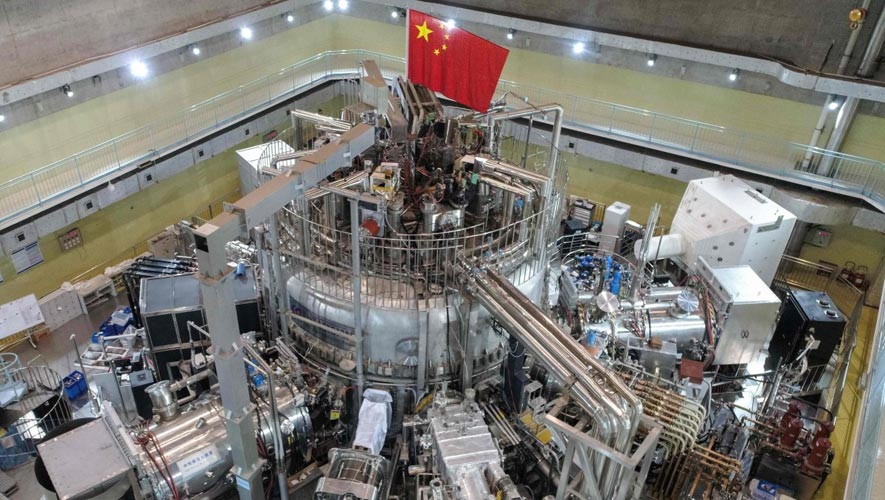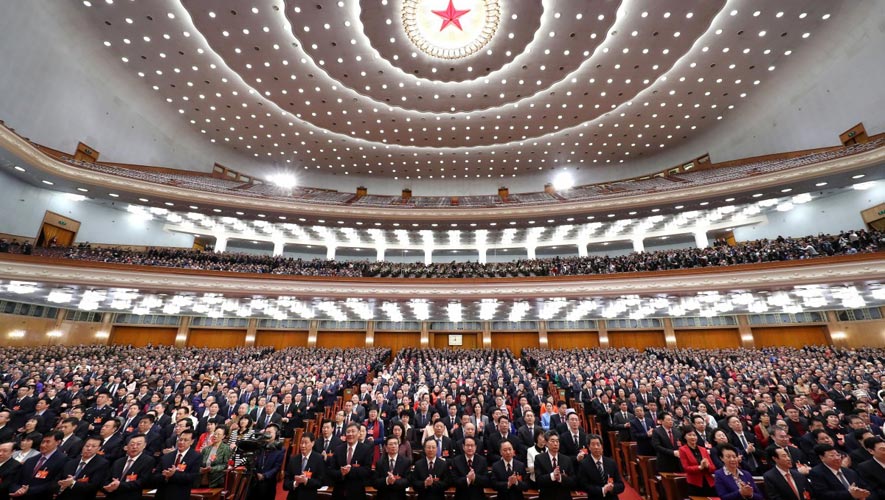The formation mechanism of Chinese policies appears to be mysterious and its impact is enormous.
For the latest Cambodian Business news, visit Khmer Times Business
In today’s world, China is integrated into the world market.
Therefore, how Chinese policies are formulated is an issue of concern not only for China, but for other parts of the world as well.
How then, are China’s policies formed? The reality is not always in accordance with logic.
China is a huge socialist market economy country that has been transformed from a planned economy.
Because the government controls almost all policy resources, as well as major economic resources, China’s national governance and economic development are closely related to its policies.
Crucial to economic operation
It is not common that things cannot be done if there is no policy to raise resources, let alone achieving major plans.
Maintaining the constructive and applicable policy work, therefore, will be crucial to China’s actual economic operation.
Broadly speaking, the planning of various strategies, the research and preparation of master plans, as well as the formulation, implementation, and evaluation of various special policies such as industrial and financial policies, actually form a complex system around the policy activities.
To a certain extent, the operational process of government work is the process of formation, formulation, announcement, implementation and evaluation of policy ideas.
Xu Lin, former head of the fiscal and financial department at the National Development and Reform Commission (NDRC), recently published an article about the experience and thoughts of his participation in national planning and policy works during his 29-year policy career, showing the characteristics of China’s policy works.
Strategic goals
Planning works, especially the five-year plans, are vital for China’s policy works because they reflect the country’s strategic goals and blueprint for future development.
In the actual planning works, political will, internal and external environment, goal setting, development orientation and constraints and development arrangements are considered.
The preparation of the planning works has a certain openness, although it is still done within the government system that is generally closed.
Increasingly liberalised
However, in the new international and domestic environment, planning and development works in China are now facing various challenges.
Xu Lin believes that the challenges are mainly reflected in some of the following aspects.
Increasingly liberalised
First, under the market economic system, the role of planning has its limitations. As the integration of the Chinese domestic market with the international market deepens, if the economic and social development plan is too rigid in its function as guide and constraint, it may be misleading for the increasingly liberalised economic system and market players.
Second, in a complex and volatile environment, the limitations in the planning officials’ understanding will have many effects on the rational and operability of planning.
Third, the functions and means of planning are increasingly subject to international rules.
As the Chinese economy has been deeply integrated into the global economy, the impact of various development plans will not just affect China.
Therefore, changes in the relevant international rules need to be considered in the innovation and design of the Chinese systems and policies.
This is to reduce the incompatibility with the international rules.
Concise and integrated
Fourth, the build-up of the national planning system needs to be improved and concise. In particular, there is a high number of planning in the competitive fields and this means that the functions between the plans could be incompatible with each other. Hence, such plans need to be more concise and integrated.
For industrial policies with Chinese characteristics that have a greater impact on the market, Xu Lin believes that there is room for improvement and China needs to formulate smarter industrial policies.
First of all, there is a need to transform the selective industrial policies into functional industrial policies, focusing on creating an environment of fair competition for different industries. This is also to reduce the distortion lost because of misallocation of subsidies, overcapacity and resource waste.
Strengthening R&D
Then, there is also the need to support weakest industrial technology links, focusing on strengthening basic core technological research and development support.
In addition, in the international trade negotiations, China will need to insist developed countries cancel export restrictions on high-tech products against China, otherwise China should insist on import substitution policy rights in these areas.
There is also the need to reduce the size and quantity of industrial funds led by the governments of all levels. This allows market-oriented equity investment funds and venture capital funds to play a larger role.
Finally, China should continue opening up its domestic markets including manufacturing, services, information, research and development, and actively participate in the construction of global industrial and research and development chains, as well as in formulating related international rules to build predictable internationalised institutional guarantee.
Scrutiny and testing
Xu Lin also believes that government officials who study policy development are different from scholars in the academic and research institutions. But whether it is planning or policy formulating, the result must first be able to withstand professional scrutiny and testing.
Only after that political balance between political correctness and stakeholders should be reached.
If attention is only given to political correctness but the plans and policies cannot withstand professional examination, they will not be effective in guiding the development of the country.
Looking from the complicated whole, Xu Lin’s thoughts on China’s policy planning mainly focus on the scope of industrial policies. The scope of actual Chinese policies is certainly greater than this.
In the policies pertaining to diplomacy, geography, conflict, reform and opening-up, as well as the macroeconomics, things are much more complex and variable and the impact is greater too.

Policy formulation process
As an independent Chinese think tank that has long been engaging in public policy research, ANBOUND has a good understanding of China’s policy formulation process.
Policy officials often view policy formulation from the perspective of government system or from their own experience.
In reality, the complete policy formulation process includes more steps. The formulation of public policy in the modern sense is a policy science with complexity and systematicness.
According to our research experience and policy research practice, to ensure the scientific nature of the complex policy formulation system, it is necessary to have a scientific division of the policy process.
Clarifying meaning and value
From the historical point of view, the whole process of China’s policy formulation can be roughly divided into the following four stages:
The first is the stage of policy formulation. This is the stage in which the policy framework is formed. To form a policy framework, a clear policy idea is required to clarify the meaning and value of policies.
The formulation of China’s policies has been relatively closed in the past, thus the policy formulation was mainly depended on the high-level cadre group’s vision and their understanding level.
Nowadays, the formulation of policy has made great progress compared with the past.
In addition, think tanks, scholars and all sectors of society have the opportunity to participate in the process as well.
That being said, the efficiency and quality of the policy idea formation still need to be improved.
The second stage is the stage of policy preparation. This stage is a process of preparing and integrating policy documents.
More work needed
At this stage, the policy ideas have been defined and the policy tasks have been determined, but the policy documents have yet to be formed.
More work needs to be done to turn policy ideas, policy materials and preliminary research into policy documents for further discussion.
This stage is usually carried out by the corresponding government departments, including the policy research offices of party committees and governments at all levels that often play a very important role in policy document preparation.
Selected experts and scholars from other institutions within the system will also participate in this process in an individual manner.
Next, the third stage is about policy resolution. This stage consists of the discussion and consultation of the policy.
In China’s policy process, opinions on the policy documents and decisions that have been formed still need to be heard in a broader field.
The importance of this stage lies in the formulation of policy concepts, which are very important because they help to provide a basis for promulgation.
Final stage
Usually, this process needs to be determined in the meeting and the opinions discussed from all parties are collected and summarised.
After that, the work of policy formulation actually goes back to the top-level and thereby the revised policy would be concluded.
The final stage is policy implementation. This stage not only consists of the implementation of the policy, but also its promulgation.
The policy should be widely publicised to form a tide and momentum in the community.
This is known as “policy mobilisation”. It is an open stage with high public participation.
In addition to public opinions and suggestions, there will be plenty of news reports and comments on the policy.
Of course, there will also be various criticisms and even objections to the policy.
Therefore, the stage of policy implementation is accompanied by various policy interpretations and understandings.
This stage, however, will do little to modify policy in practice.
Final analysis conclusion
Modern public policy formulation is a complex and systematic science. China’s policy process is divided into four stages, including policy formulation, policy preparation, policy resolution, and policy implementation. This is a basic process for China to implement its policies and an important process for making China’s policy more scientific, constructive and effective.
Chen Gong is the founder of ANBOUND Think Tank, launched in 1993. He is now ANBOUND chief researcher. Chen is one of China’s renowned experts in information analysis. Most of Chen’s outstanding academic research activities are in economic information analysis, particularly in the area of public policy. He Jun is a master in the Institute for the History of Natural Sciences, Chinese Academy of Sciences, majoring in intellectual history of science and is a senior researcher at ANBOUND Consulting, an independent think tank with headquarters in Beijing. Anbound specializes in public policy research




